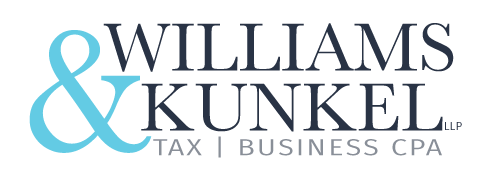While tax season may be months away, December 31st will be here before you can say “Jingle Bells.” The fourth quarter is the best time for some proactive tax planning to lower your tax bill. With extensions, you may be able to delay filing your 2019 taxes until late 2020. However, many tax-saving moves need to be made before the end of the year. (Year-End Tax Moves For Successful Business Owners)
Set Up The Optimal Retirement Plan For Your Business
One of the best ways for business owners to slash their taxes is to establish a great retirement plan. This could be anything from a SEP IRA to a Solo 401(k), up to the combination of 401(k) with a defined-benefit pension plan.
SEP IRA – If you work for yourself, you can contribute 20% of your self-employment earnings into a SEP IRA, per year, with a maximum contribution of $56,000 for 2019. There are no catch-up contributions for SEP IRAs. With no year-end deadline, set up a SEP IRA just before filing your taxes for the previous year.
Solo 401(k) – Typically, a Solo 401(k) will allow for larger pre-tax contributions, which should translate into fewer taxes being owed. Business employees can contribute up to $19,000 for 2019 plus a $6,000 catch-up contribution if they are at least 50 years old. Additionally, the business will be able to make a profit-sharing contribution, up to 25% of payroll. That means a grand total of $56,000 (or $62,000 for those over 50) could be saved provided the individual contributes the maximum amount allowed by the IRS ($19,000 for 2019), and the business contributed the maximum allowable amount for payroll.
Set up a Solo 401(k) plan during the tax year, but some funding can be done later. For 2020, contribution limits for 401(k) and profit-sharing plans will be increasing.
Defined-Benefit Pension Plan
For those needing huge tax savings, the defined-benefit pension plan is king. Combine it with a 401(k) profit-sharing plan, and your business could sock away a few hundred thousand dollars per year.
Pension plans are the most complicated of the business retirement plans to set up because the plan design is complex and time-consuming. If you think this may help your business keep more of its hard-earned money, talked to your trusted fiduciary financial planner ASAP.
Home Office Deduction
Are you self employed or a business owner? If you work from home, you may be able to take the home office deduction. Here is what you need to know to determine if you qualify and get a better understanding of how this often-scary deduction works.
This valuable tax break can save hundreds, or even thousands, of dollars in taxes. The best part is that you are already incurring the expense for housing regardless of your business. Take the time and discuss the home office deduction with your tax preparer to make sure you qualify.
Get Your Books In Order
Even for the most organized business owner, tax time can be stressful. If your book is a mess year after year, consider hiring a bookkeeper or, at the very least, taking the time to get your books in order ahead of a tax deadline.
Claim First-Year Bonus Depreciation
One of the positive changes from the Tax Cuts and Jobs Act (TCJA) is that you can now get a 100% first-year bonus depreciation for qualified used and new property that was acquired and placed in service during your 2019 business year. You may be able to get a tax break for the entire cost of assets purchased in 2019. If you are having a big income year, you may want to consider moving up some planned purchases into 2019.
Planning for 2020 Taxes
When planning for 2020, most rates will be similar to the tax rates for 2019. A few small adjustments to brackets and retirement plan limits have already been announced by the IRS for 2020. Even if we choose a new president in the November election, the new president and Congress would need to decide to enact a retroactive tax change for 2020. While that could happen, major changes that late in 2020 are unlikely. Changes beyond 2020 are much more likely as both parties are campaigning on tax law changes for the future.
Be Proactive With Your Tax Planning
With proper timing (from tax planning), your income and deductions could become more valuable. For those who use a pass-through entity (Sole Proprietor, S Corp, LLC, or Partnership), your portion of the business profit and deductions are passed through to you and eventually taxed on your own personal tax returns. Taxes are based on your overall household income and filing status.
The 2020 federal income tax brackets are similar to the 2019 brackets, with a few small adjustments for inflation. If you expect to be in a lower tax bracket next year, try to defer some income into 2020. Likewise, you may also want to move some tax deductions up into 2019. At the very least, these tax-saving strategies can help defer some of your taxes from 2019 to 2020, which will give you a little more time to pay Uncle Sam.
You will want to take the opposite approach if you expect to be in a higher tax bracket in 2020. In this case, you would want to accelerate income where possible into 2019. Or, you may want to delay some deductions until 2020. Doing so would mean that you would have more income taxed this year (2019) but end up with an overall lower net tax rate overall for the two years combined.
Call Williams & Kunkel CPA today in Flower Mound at 972-446-1040 to have a chat and find out how you can save money on your taxes as a real estate professional.
In addition, you can connect with us to receive updates throughout the business week by following us on Twitter or LinkedIn or liking us on Facebook.
Source: Forbes

